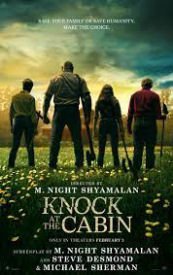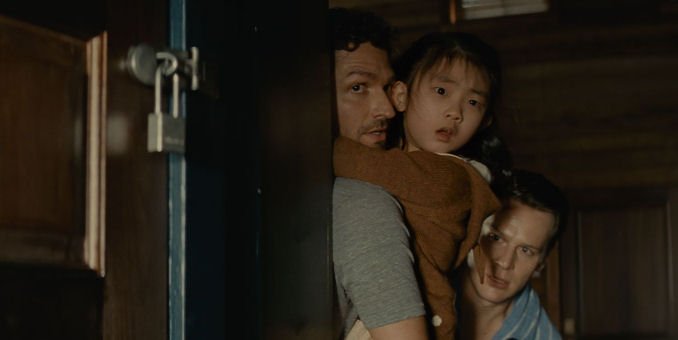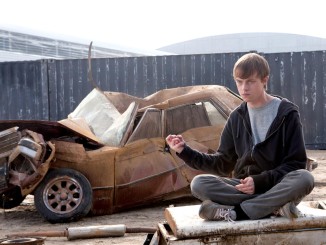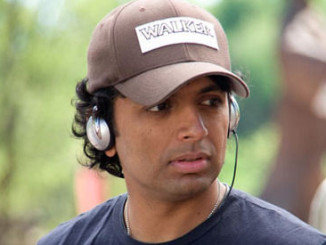
Knock At The Cabin is the best film of writer/director M Night Shyamalan’s recent resurgence that started with 2016’s Split. That’s not to say it is on par with the director’s best work – the 1999 to 2002 run of The Sixth Sense, Unbreakable and Signs – but it does show flashes of the brilliance from that period. The core conceit of being forced under duress to chose a family member to die certainly contains more than an echo of the classic Sophie’s Choice. Putting it into a supernatural thriller/horror film context does nothing to lessen the impact of such a horrific choice being forced on someone. Interestingly, Shyamalan averts the camera’s gaze at times of violence, keeping the audience from seeing what are moments of gory violence.
Where the film is at its best is because of Shyamalan’s control of the rise and fall of tension. Through some deceptively simple camera work, the occasional ingenious bit of composition and some tight editing, he manages to wring a fair amount of rising dread through each portion of the clash between the family and the intruders. Interspersed between these segments are flashbacks that fill in some of the backstory of Eric and Andrew’s relationship and how they came to adopt Wen while also serving as a bit of a release valve, deflating some of the tension and allowing the audience a momentary breather before Shyamalan again turns up the pressure on them and his characters. It is a simple technique but well-used here.
Shyamalan walks a tightrope with regards to the reality of the situation. Are the intruders delusional or have they really been given visions of an impending apocalypse that only they can stop? It is a question that he manages to keep burning right until the end of the film. (And even then, there may be some wiggle room to doubt what the movie suggests.)
This isn’t a simple home invasion-style thriller though. Shyamalan seems interested in the idea of how people cope with the constant barrage of bad news courtesy of cable news networks and an eternally voracious news cycle that. Are the four intruders simply hyped up on extremist media and religious iconography? Unfortunately, the longer that Shyamalan keeps the ambiguity of the situation in play, the less actual exploration of this theme he can do. He also seems to be interested in examining the idea of faith in a way that echoes certain things he explored in Signs though coming at it from an entirely different angle this time.





